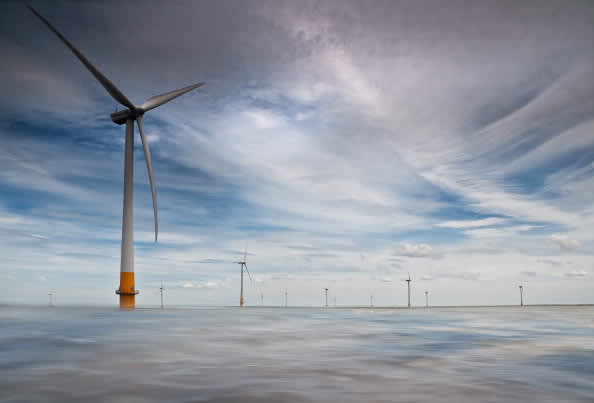- The biogas facility generates energy using materials like grass and maize, which are grown on the Isle of Wight, off the south coast of England.
- Business practices connected to the notion of a circular economy have gained traction in recent years.
A turbine production plant owned by energy giant Vestas will now be powered using an environmentally-friendly source of gas, according to a new deal announced on Monday.
A biogas facility off the south coast of England will soon provide electricity to a factory operated by the Danish company, in what will be the latest example of how the idea of a "circular economy" is being embraced by big business.
In a statement Monday, Earth Capital said its portfolio company, Black Dog Biogas, would send power to the Vestas factory, which manufactures blades for offshore wind turbines. Both sites are located on the Isle of Wight.
The Black Dog plant is able to provide enough power to meet roughly 80% of the Vestas factory's requirements, in addition to approximately 1,200 homes on the Isle of Wight, Earth Capital said.
The biogas facility generates energy using materials like grass and maize, which are grown on the island. The process has several steps, according to Earth Capital. Enzymes break the feedstocks down, producing biofertilizer and biogas.
The latter is used to fuel two combined-heat-and-power units, which produce heat and electricity, while the biofertilizer is scattered on farmland to help produce the crops used by the power plant.
This, Earth Capital said, helped to "support a circular economy" whilst at the same time negating the need to use what it described as "carbon intensive fertilisers."
Turbine waste and the circular economy
Business practices connected to the notion of a circular economy have gained traction in recent years, with many companies around the world looking to operate in a way which minimizes waste.
For its part, the EU has described the circular economy as being "a model of production and consumption, which involves sharing, leasing, reusing, repairing, refurbishing and recycling existing materials and products as long as possible." This, it adds, extends the life cycle of products.
The wind energy sector is one area where the circular economy could have a significant effect in the years ahead.
This is because turbine blades are made from composite materials which are difficult to recycle, meaning many end up as landfill when their service life ends.
Things are changing, however. Last January, for instance, Vestas said it was aiming to produce "zero-waste" wind turbines by the year 2040.
And in December 2020, it was announced GE Renewable Energy and Veolia North America had signed a "multi-year agreement" to recycle blades removed from onshore wind turbines in the United States.
GE Renewable Energy said the blades would be shredded at a VNA site in Missouri before being "used as a replacement for coal, sand and clay at cement manufacturing facilities across the U.S."
Credit ratings
News of Vestas' deal with Black Dog Biogas came on the same day the Danish turbine maker said it had been assigned a Baa1 long-term issuer credit rating from Moody's.
In its own statement, Moody's explained the newly assigned rating factored in what it described as "the long-term growth expectations for the wind turbine market" alongside Vestas' "position as the market leader."
"The sustained growth expectation combined with the gradual expansion into the offshore segment should support continued income growth and higher margin levels going forward," Moody's added.
Source: Read Full Article
